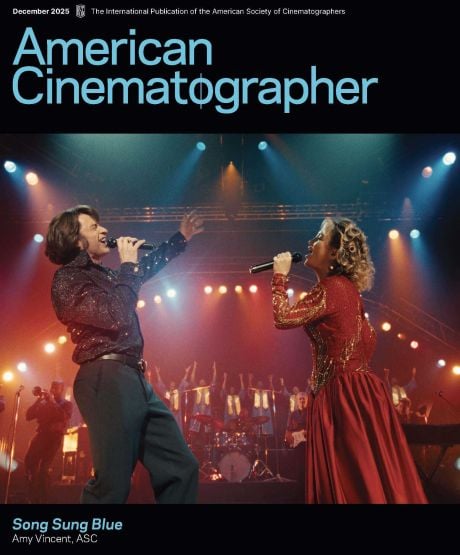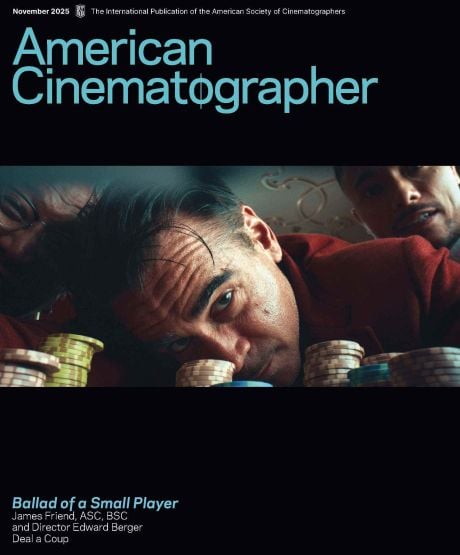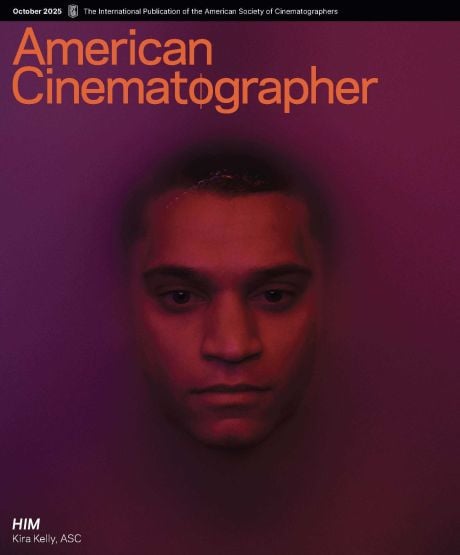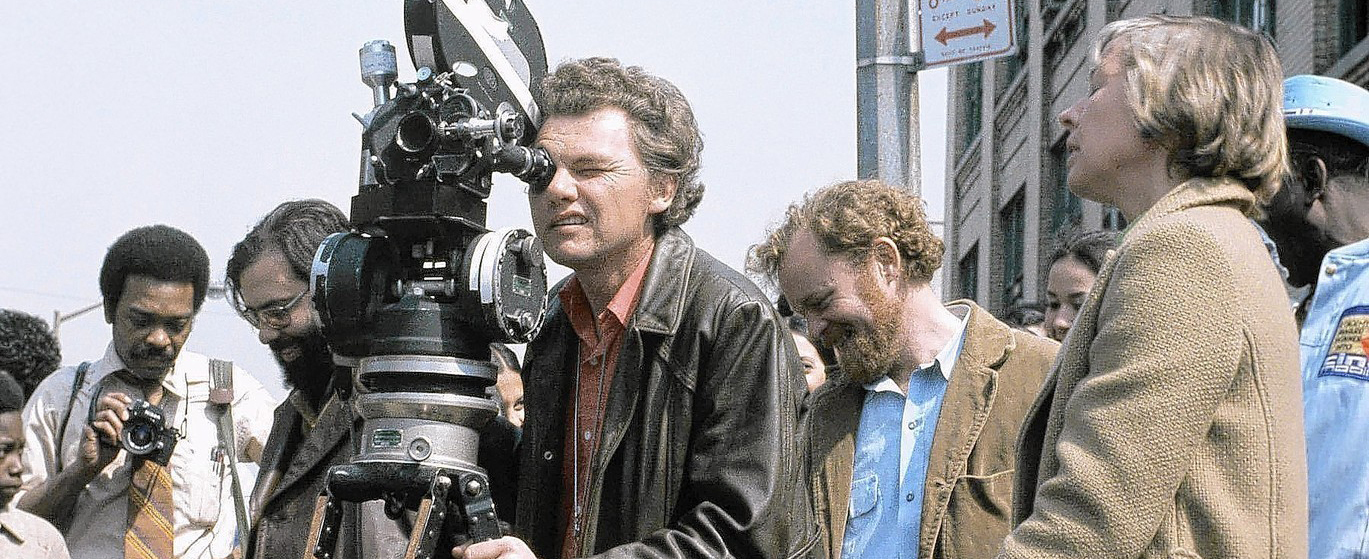
ASC Legends Video Collection
Revealing interviews produced by the ASC that explore the art and craft of prominent members' careers.
These videos are exclusive to Friends of the ASC.
ASC Legends videos are revealing interviews produced by the ASC that explore the art and craft of prominent members' careers.
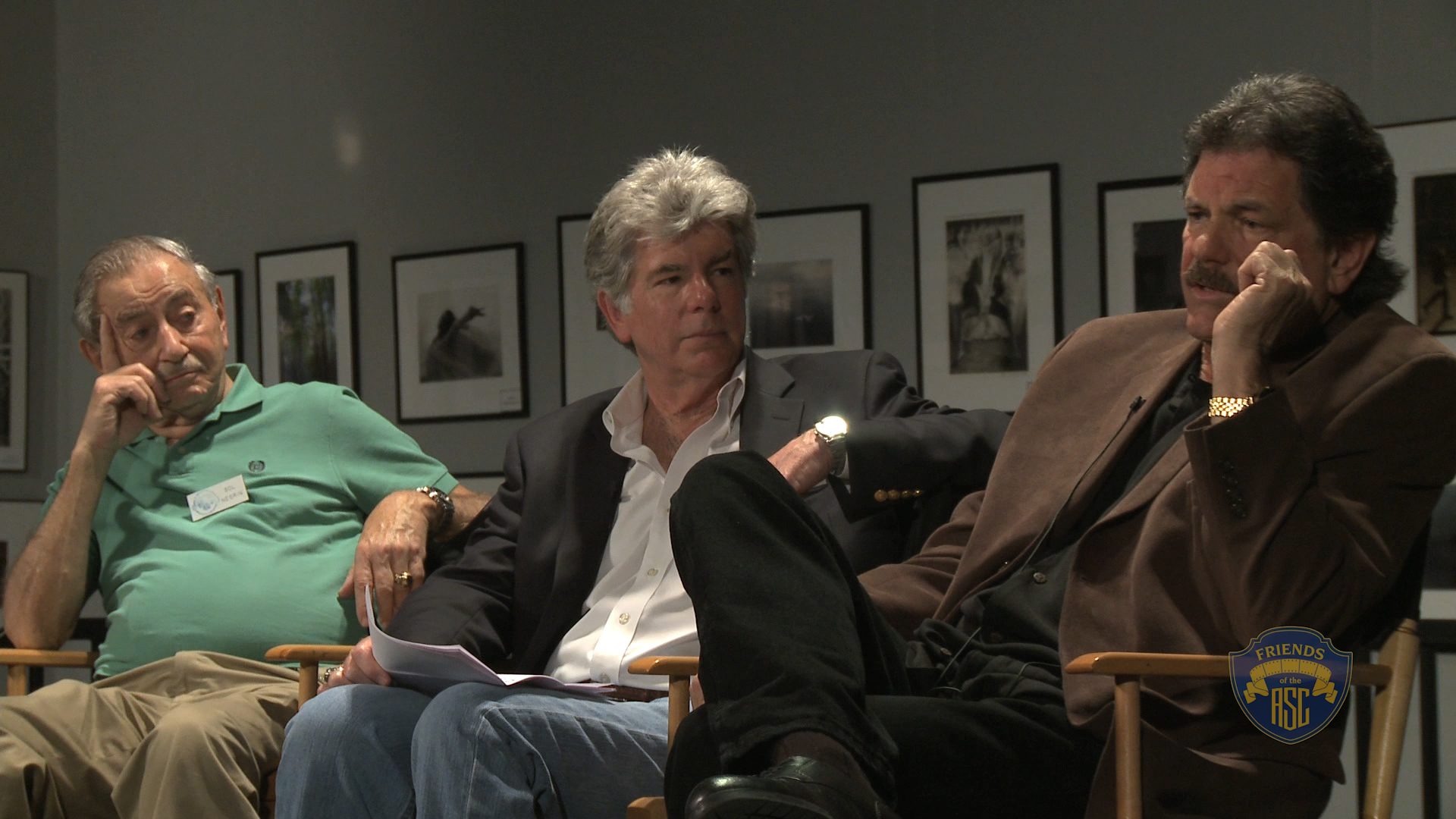
On Saturday, February 20, 2010 at the Annual ASC Open House a conversation with ASC Award recipients John C. Flinn, III (Career Achievement in Television) and Sol Negrin (Presidents) was moderated by Russ Alsobrook, ASC.
- Introduction from Russ Alsobrook, ASC
- Flinn on Technological Change
- Flinn on Saving Grace
- Flinn on Memorable Mistakes
- Negrin on his Early Career
- Negrin on Change in Shooting TV
- Negrin on Guiding the Episodic Series
- Negrin on Kojak
- Passion for the Craft
- Short Cuts on Production
- Q&A
Born in Hollywood, California, Russ Alsobrook, ASC rose to the director of photography rank in 1990. He is a past chairman of the American Society of Cinematographers Awards. His credits include Reign Over Me, Forgetting Sarah Marshall, Superbad and Big Love.
Born in Los Angeles, California, John C. Flinn, III, ASC rose to the director of photography rank in 1979. He has since been nominated for seven Emmys, once for the series Magnum P.I., twice for Jake and the Fatman, twice for Babylon 5, one each for the television movies The Operation and Hunter: Back in Force. He won an ASC Award for Jake and the Fatman and two nominations. His television credits include Hill Street Blues, Gilmore Girls and Saving Grace.
Born in New York City, New York, Sol Negrin, ASC rose to the director of photography rank in 1972. He has since been nominated for five Emmys, three for the series Kojak, one for the television movie The Last Tenant and the last for an episode of Baker’s Dozen. His television credits include McCloud, St. Elsewhere and Women at West Point.
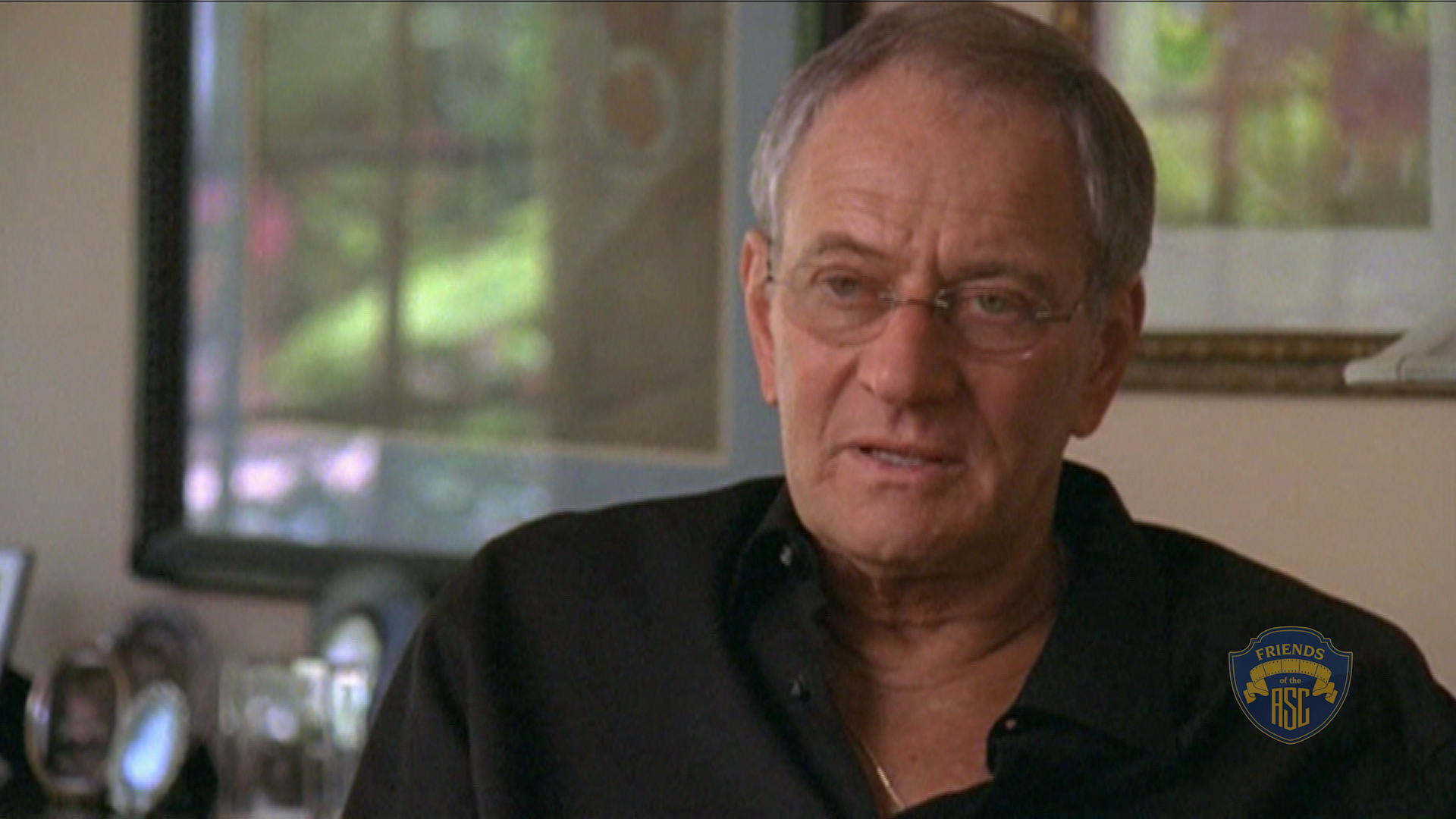
Cinematographer Owen Roizman, ASC’s stunning work behind the camera has been recognized with five Academy Award nominations, for The French Connection, The Exorcist, Network, Tootsie and Wyatt Earp. His willingness to experiment and ability to deliver a look uniquely appropriate to each story have been manifested in a diverse list of credits that also includes the features The Heartbreak Kid, The Taking of Pelham One Two Three, The Stepford Wives, Three Days of the Condor, True Confessions, Havana and The Addams Family. Here are excerpts from an interview conducted by Michael Goi, ASC, in Roizman’s home.
- Shooting The French Connection
- The 'Poster' Shot for The Exorcist
- The Taking of Pelham, One, Two, Three
- Network and Sidney Lumet
- Tootsie and Sydney Pollack
- ASC and the Future
The son of cameraman Sol Roizman, Owen Roizman, ASC grew up in Brooklyn, New York, where he dreamt of becoming a baseball player. He began working for a camera rental house during his summers, and after studying physics and math in college, he decided to find employment as a camera assistant. This in turn led to work as an operator, and Roizman then notched his first director of photography credits on the features Stop (which was never released) and The French Connection. He was nominated for an Academy Award for his work on the latter, and was again nominated for his work on The Exorcist, Network, Tootsie and Wyatt Earp. In 1997, the ASC presented Roizman with its Lifetime Achievement Award.
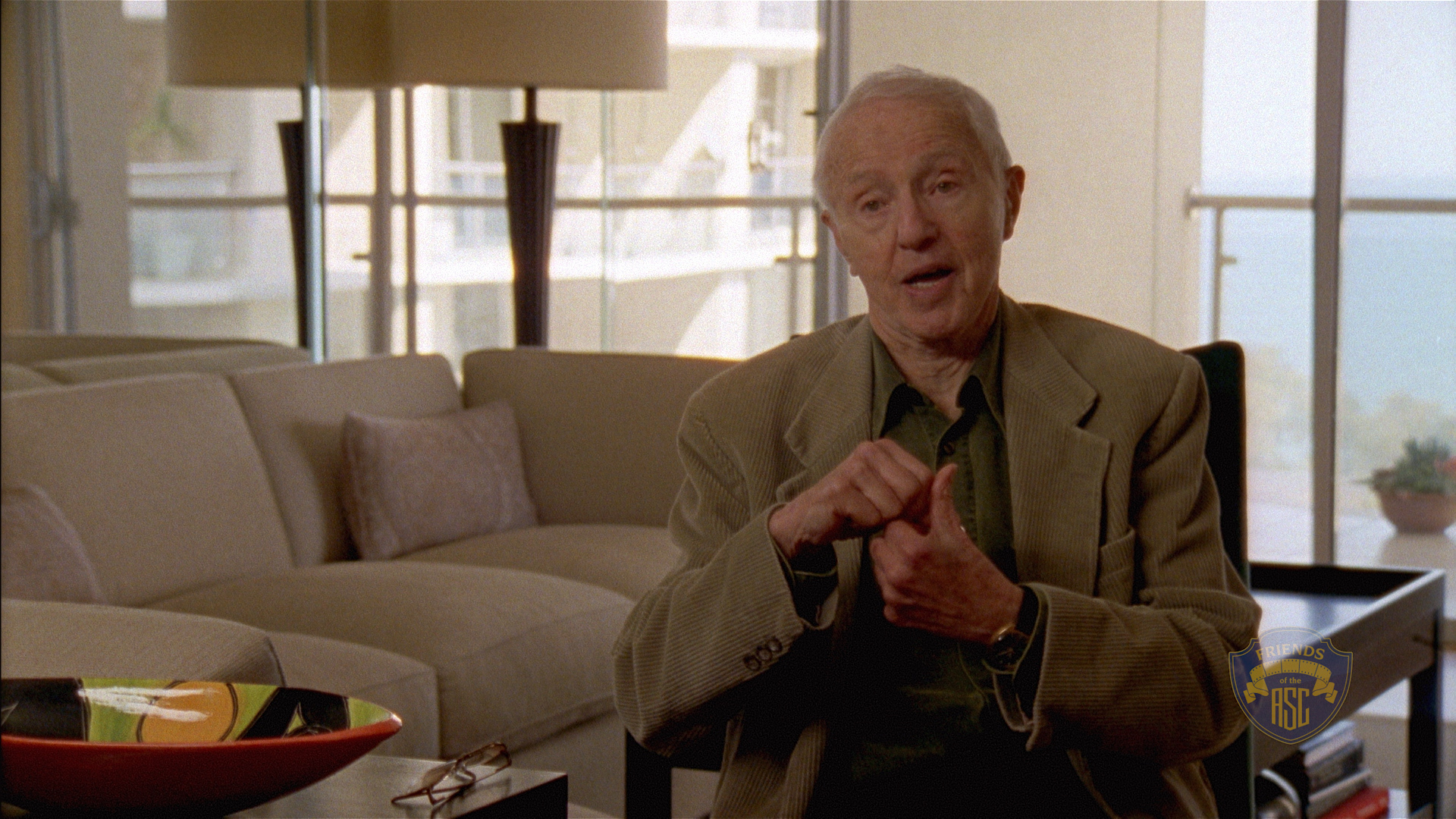
One of the most influential cinematographers in the world, Haskell Wexler, ASC, has worked steadily in mainstream and independent cinema throughout his career. He has won two Academy Awards, for Who’s Afraid of Virginia Woolf? and Bound for Glory, and his directorial debut, Medium Cool (which he also shot), is considered a landmark in American film. His cinematography credits include America, America; The Thomas Crown Affair; In the Heat of the Night; One Flew Over the Cuckoo’s Nest; Coming Home; Matewan and Blaze. Here are excerpts from an interview conducted by Michael Goi, ASC, in Wexler’s home.
- Being an Assistant in Newsreels
- On James Wong Howe, ASC, Picnic, and Technicolor
- Who's Afraid of Virginia Woolf
- Cinema Verite, Salesman, and filming in Vietnam
- Technical Innovation in Documentaries
- On Working with Others, and Conrad Hall, ASC
Born in Chicago in 1922, Haskell Wexler, ASC, is one of the most influential cinematographers in film history. In a career that has spanned six decades, he has received five Academy Award nominations, winning the prize for Who's Afraid of Virginia Woolf? (1966) and Bound for Glory(1976). Medium Cool (1969), a fiction/nonfiction hybrid that he wrote, directed and photographed, is considered a landmark in American film. His feature credits also include In the Heat of the Night (1967), The Thomas Crown Affair (1968), Coming Home (1978), Matewan (1987), Blaze (1989) and Who Needs Sleep? (2006). He received the ASC Lifetime Achievement Award in 1993.
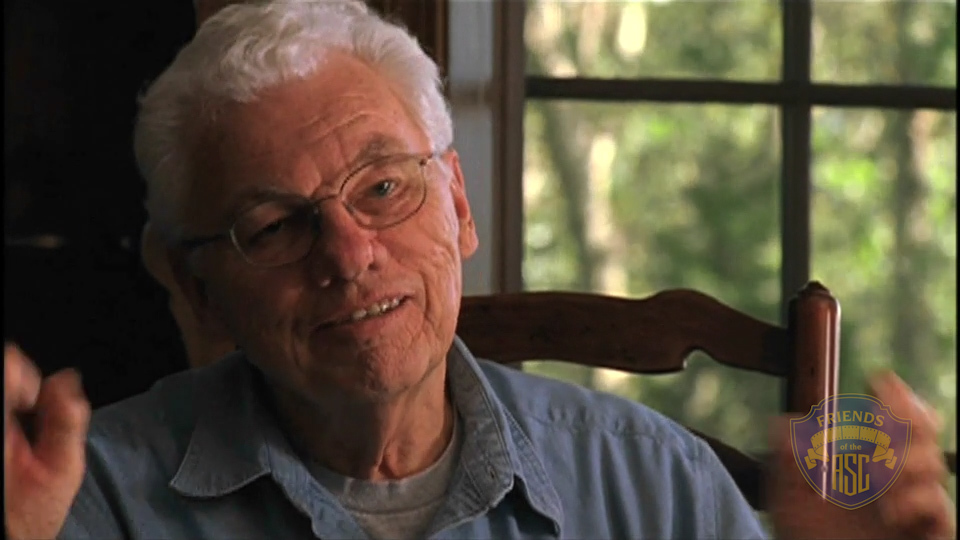
Gordon Willis, ASC, had a seismic influence on his chosen art form. One of a handful of cinematographers whose work came to define the American New Wave of the 1970s, Willis became renowned for his inventive visuals in The Godfather, Klute, Manhattan, The Parallax View, All the President’s Men and Annie Hall, among other titles. He earned two Academy Award nominations, for Zelig and The Godfather Part III, and was awarded an honorary Oscar in 2009. The ASC honored him with its Lifetime Achievement Award in 1995. Here are excerpts from a 2004 interview conducted by Richard Crudo, ASC, in Willis’ home.
Born in the Queens borough of New York City, Gordon Willis, ASC, became interested in still photography at an early age. During the Korean War, he served in the U.S. Air Force, working in the Photographic and Charting Service in a motion-picture unit. Following an honorable discharge, he joined the camera union as an assistant and moved up the ranks. He notched his first feature credit on 1970’s End of the Road, and his film credits included the Godfather trilogy, Klute, The Parallax View, All the President's Men, Manhattan, Annie Hall and Pennies from Heaven. He earned Oscar nominations for Zelig and The Godfather Part III, and he received an honorary Oscar in 2009. He was the recipient of the 1995 ASC Lifetime Achievement Award.




